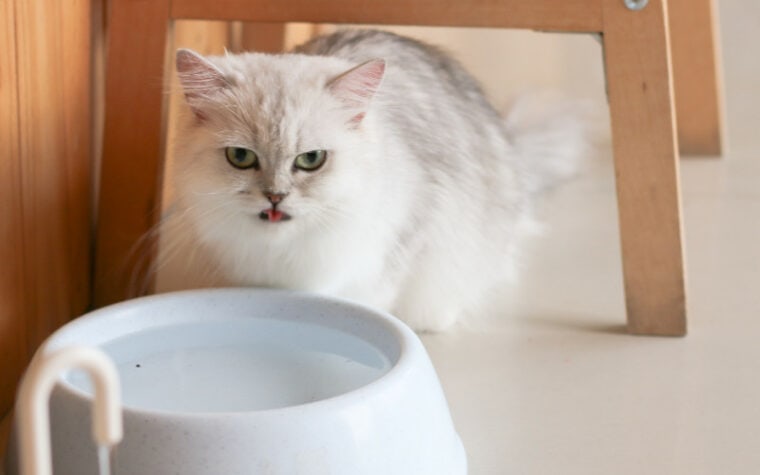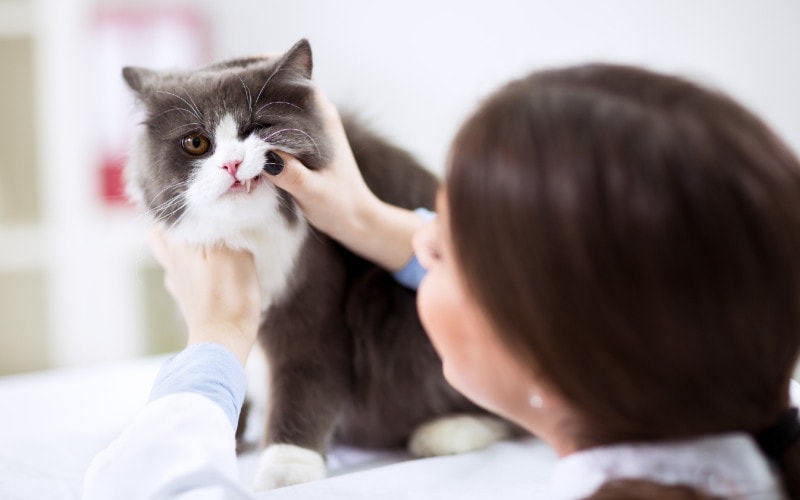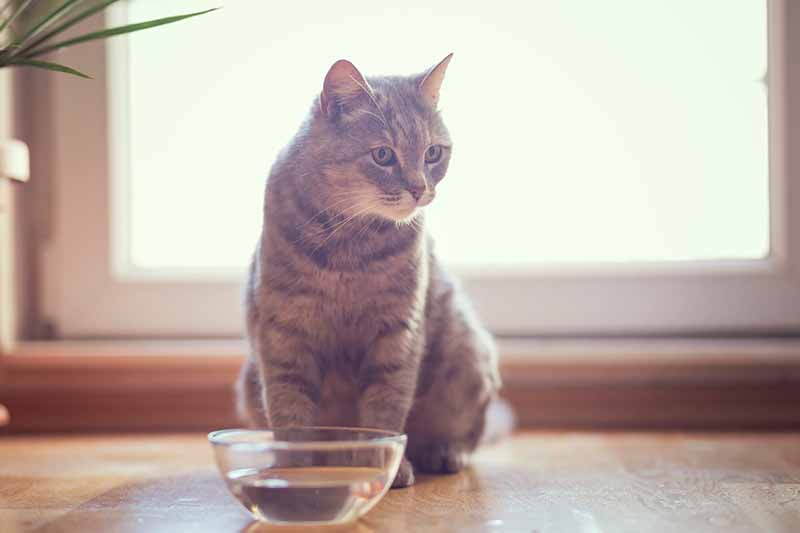
Click to Skip Ahead
It is reported a staggering 50–90% of cats over 4 years old have some form of dental disease. Most commonly, this is seen as gingivitis (inflammation of the gums), tooth resorption (formerly known as feline oral resorptive lesions), and periodontal disease (an exaggerated form of gingivitis). Introducing dental care or some form of dental care as early as possible is the best way to prevent dental disease from occurring, and dental water additives are a great option—if not a Godsend—to cat owners in particular.
Is It Necessary to Clean My Cat’s Teeth?
While your cat may not think so, it is, and this task falls to pet owners to undertake. The mouth is naturally full of bacteria, and with all the food your kitty eats on a daily basis, this soon turns into plaque accumulation on the teeth. This cycle will continue causing further, more serious problems if the mouth and teeth are not cleaned on a daily basis.
Prevention is the key and definitely works. It reduces the chance of your cat needing veterinary treatment further down the line. It’s harder (and more expensive) to correct dental problems than it is to prevent them.
Beginning a dental regime as soon as possible enables your cat to become used to this process. Simple acts such as opening their mouths and rubbing their gums at early ages help to normalize this. In turn, these acts can be gradually increased to the gold standard of dental care—daily brushing.
Starting early and in steps reduces issues and fear your cat may have around dental care, making it easier and non-stressful as they get older. It is also helpful for you, as some pet parents find it tricky to fit consistent daily dental care into their routines later in their pet’s life. So, starting from the get-go is a blessing both for you and your cat.
However, what does a pet parent do if you can’t get anywhere near your cat’s mouth? This is a very common question, as cats can sometimes be more difficult to handle than dogs, but there is a “hands-off” answer.

How to Clean My Cat’s Teeth Without Brushing
Brushing your cat’s teeth daily is the advised and preferred solution. Think of what your teeth would be like if you never brushed your teeth for your whole life! If you are unsure what to do or how to use any of the following dental health options, have a discussion with your veterinarian, and together, you will be able to find the right combination for you and your cat.
What Is a Dental Water Additive?
These are sold as a liquid in a bottle, similar to human mouthwash, and they contain special ingredients to fight and remove bacteria preventing plaque build-up on the teeth. A measured amount of the liquid (each product is different so follow their individual guidelines) is added daily to your cat’s water.
Be sure to use a fresh supply of water and additives each day, and don’t be tempted to add an extra bit thinking it will help more. Water additives are concentrated and exceeding the advised amount is not recommended.
Dental water additives are not as effective as brushing your cat’s teeth, but studies have proven that water additives containing xylitol are effective in reducing plaque and calculus in cats, so you have peace of mind that it is working.
It’s worth noting that some professionals say water additives can lead to excess water consumption, but if your cat has an underlying health condition like kidney disease, it can be problematic.

Benefits of Dental Water Additives
Additional Health Benefits of Water Intake in Cats
We’ve explored the potential preventative treatment options for dental disease in cats, with water additives being one option to combat the issue, but it’s important to remember that water itself is a great preventative or aid in many other feline diseases.
They can include the following:
Because hydration is so important for this desert-originating species, encouraging any additional water intake can be very helpful in allowing your cat to maintain proper hydration and potentially fight other issues at the same time. Feeling wet food can be an easy option, as can adding additional water to their food. Furthermore, many cats love the fresh, flowing water that a cat fountain can offer, so this can be another great option to keep your cat healthy and hydrated. The filtration systems found in water fountains can further minimise the amount of microbes and water contaminants your cat is exposed to.
Conclusion
Although brushing your cat’s teeth daily is by far the best option to maintain your kitty’s pearly whites and is key to good dental health, dental water additives are also a good idea, especially if your cat is uncooperative! With proven studies to support their claims and ease of use, dental water additives make an ideal and easy addition to your cat’s health routine. Even if it is the sole form of dental care provided it is better than no prevention at all.
Remember to have regular dental check-ups with your veterinarian, and if you are unsure about which dental water additive to use, ask for their advice. Always check with your vet first before buying dental products to ensure they won’t interfere with your pet negatively.
Featured Image Credit: Punyaphat Larpsomboon, Shutterstock







